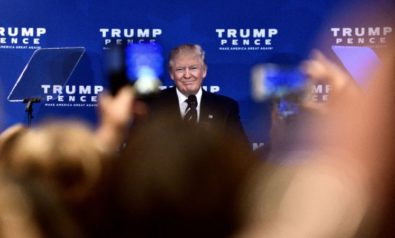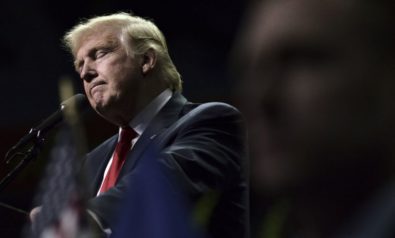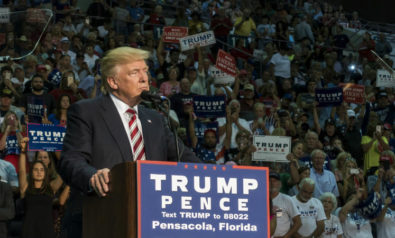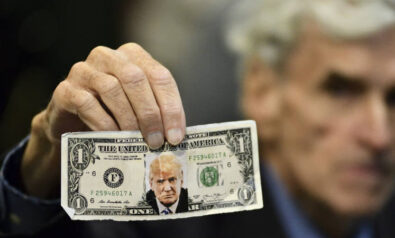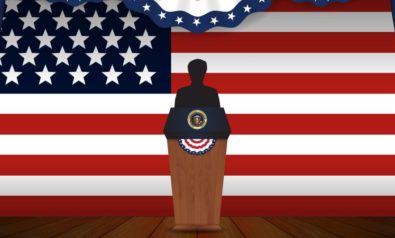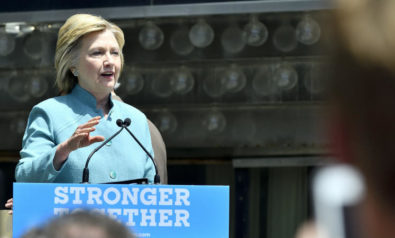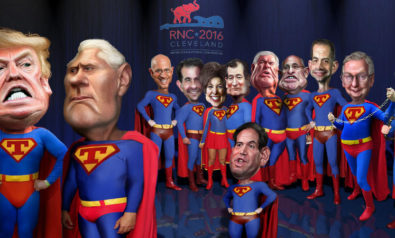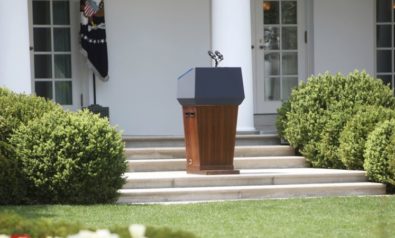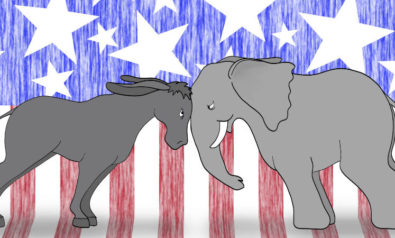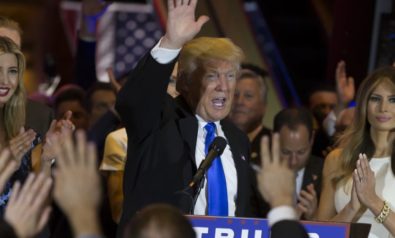It is a mistake to ignore the US primary elections, where Bernie Sanders was crushed by so-called democratic institutions.
For all the hand-wringing over the US presidential candidates, for all the from whence rose the “Trump Monster,” for all the reminiscing for the Democratic primary’s more-substance filled days, insight is here. Yet it comes by examining the campaign of Vermont Senator Bernie Sanders—aka the anti-Trump—in which he advocated for love and compassion to be etched into American policies. The American public did want to see his etchings, and they made him competitive throughout the presidential primaries.
Ultimately, Sanders was crushed by the establishment, a term mocked by Hillary Clinton’s supporters during the primary, who were known to be deeply committed to her advocacy. Thomas Frank’s new contribution in Harper’s Magazine and a review of this author’s previous articles provide a useful look into an important chapter of American progressive history, upon which the US must understand, correct and build.
THOMAS FRANK ON THE WASHINGTON POST’S EXTERMINATION
Frank’s blistering Harper’s article, “Swat Team: The Media’s Extermination of Bernie Sanders and Real Reform,” looks at the January to May 2016 coverage of Sanders in The Washington Post, a publication “that defines the limits of the permissible in the capital city.” Frank is already famous for his groundbreaking work describing tectonic national political shifts. This article is more than up to par.
Frank’s fascinating look includes all articles, op-eds and blog posts of this period. By and large, they heap scorn on Sanders. Opinion articles were five times more likely to be negative—versus an even balance for Clinton—as part of nearly continual, varied attacks.
Why? Sanders was an affront to the “professional class worldview”—something Frank documented extensively in Listen, Liberal: What Ever Happened to the Party of the People?
“Sanders may refer to himself as a progressive,” Frank writes, “but to the affluent white-collar class, what he represented was atavism, a regression to a time when demagogues in rumpled jackets pandered to vulgar public prejudices against banks and capitalists and foreign factory owners.”
Thus, Bernie was greeted with an unending stream of negative coverage. Early on, they dismissed him for not planning social security cuts or debt reduction. (The Intercept provides background for this ludicrous inside-the-beltway thinking). Later headlines include, “Nominating Sanders Would be Insane” and “A Campaign Full of Fiction” as The Post “hit every possible sort of anti-Sanders note, from the driest kind of math-based policy reproach to the lowest sort of nerd-shaming.” Sanders was even criticized for disparaging the Wall Street bailouts, TARP and the Democratic National Committee (DNC). They also objected to his putting down of President Barack Obama.
“What the Post is saying is that the American system, by its nature, doesn’t permit a president to achieve anything more than ‘incremental change,’” writes Frank of the newspaper’s mentality. “Obama did the best he could under the system … therefore he should be exempt from criticism at the hands of Democrats.”
As for the popular bold reforms that were championed by Sanders? Irrelevant! “Certain ideas, when voiced by certain people … are inadmissible. The ideas themselves might seem healthy, they might have a long and distinguished history, they might be commonplace in other lands. Nevertheless when voiced by the people in question, they become damaging.” And thus, Frank describes, “the machinery by which the boundaries of the Washington consensus are enforced.”
“Knee jerk incrementalism is a nifty substitute for actually thinking difficult issues through,” he writes. “Bernie Sanders ran for presidency by proposing reforms that prestigious commentators … found distasteful. Rather than grapple with his ideas, they simply blew the whistle and declared them out of bounds.”
Frank ends with questioning why often lowly paid journalists would choose to align themselves with policymakers instead of promoting key ideas—like college tuition and affordable health care—that might one day benefit them.
MEDIA COVERAGE OF BERNIE SANDERS
So too is it worth reviewing this author’s coverage of the election, largely borne out and expanded by WikiLeaks.
In “The High Cost of Ignoring Bernie Sanders,” the author called out the biased coverage: 234 minutes to Donald Trump, with a similar number for Clinton, versus just 10 for Sanders on ABC, CBS and NBC news programs. This came despite Trump and Sanders’ often polling similar results.
 Fair Observer provides you deep and diverse insights for free. Remember that we still have to pay for servers, website maintenance and much more. So, donate now to keep us free, fair and independent.
Fair Observer provides you deep and diverse insights for free. Remember that we still have to pay for servers, website maintenance and much more. So, donate now to keep us free, fair and independent.
“Bernie’s alternate and compelling ‘political leadership’ has drawn overflow crowds, record donors and heavy millennia support,” this author wrote at Fair Observer. “Yet a message that could trump the Trump is virtually muted by for-profit media … and that has shaped our national descent into hate- and violence-filled debate.”
The three factors behind “The Global Rise of the Far Right,” which were documented by Fair Observer’s Atul Singh in a recent talk at Google—narrow and technocratic elites being removed from the working class; the rise of income, wealth and educational inequality with falling social mobility; and the failure of collective identity—also helped lift up a progressive with inclusive humanist policies. And, thus, Bernie could have served as the counterpoint to Trump through to November 8.
Yet in 2016, the mainstream media tilted the playing field to scary angles. As this author documented in “A Presidential Candidate Exploits American Democratic Institutions,” famed media critic Robert McChesney describes ‘the greatest story [a journalist] could ever possibly ever cover” as being reported on “by the mainstream corporate media ‘through the eyes of the Clinton campaign.’”
Mainstream media failed to fact-check misleading debate statements that allowed them to call Clinton’s first debate a win, despite abundant evidence to the contrary. Press releases by the Clinton campaign were issued only to be grabbed by news outlets to distract from popular Sanders policy ideas or Clinton campaign blunders.
Americans heard near-constant allegations of sexism—though Hillary’s establishment power far outweighed individual sexism, and she was far from a feminist candidate as this author wrote in Hillary, It’s Not Us, It’s You.
Attacks on Sanders’ social media were linked to Clinton supporters; calls for him to drop out echoed across the Hillary-friendly media; and Bernie’s leadership was virtually ignored as highlighted The Most Important Speech: Bernie on the Banks.
Perhaps most egregiously was the bait-and-switch used on voters for superdelegates, who aligned with Clinton before the primaries started because of what the American public were told was “winnability.”
This author, in Superdelegates Should Support Bernie, and others made the case that Sanders was more likely to win: he polled better against Trump; suffered from highly questionable election results; drew more crossover votes; and had a better record. So, then, Americans were absurdly told that superdelegates’ votes needed to reflect the popular vote.
Heavy media bias is painstakingly examined in Frank’s analysis.
THE DEMOCRATIC PARTY IN THE PRIMARIES
Of course, Americans now know that the Democratic Party was in Clinton’s corner too. The hugely biased 2008 Clinton campaign co-chair and Democratic National Committee head Debbie Wasserman Schultz stepped down after disclosures by WikiLeaks, which conclusively showed coordination with the media by the DNC and outright bias.
In A Presidential Candidate Exploits American Democratic Institutions, this author described the DNC’s “money laundering”: the rare step of setting up an early political vehicle for Clinton, which collected up to $330,000 from a person; sending it to states; then getting 99% of it back to try scare small donors.
The presidential primary debates were at inconvenient times and limited. And President Obama was clearly in Clinton’s court, and his unwillingness to attack corporate malfeasance from the bully pulpit for eight years shaped Americans’ vision of the possible.
While the feel-good Democratic National Convention is largely out of bounds of this article, it painstakingly undermined key gains of Bernie’s candidacy, including his serious misgivings around American intervention and wars—with it now being clear that Clinton had strong misgivings about a no-fly zone—and his strong advocacy for climate change and the environment. This author documented these in Dems in Philly Fail to Confront Corporate Power. While the Democrats chose to highlight inclusiveness, today there seems to be a clouded illusion.
OTHER INSTITUTIONS
Finally, it’s important to note that this took place in an era where major American institutions are largely funded by and serve the interests of elites, as Chris Hedges has written about eloquently and thoroughly in Death of the Liberal Class. This author published The Miracle of Bernie’s Candidacy, The Holiday Story You Won’t Be Told.
Colleges—hundreds that are funded by the Koch Brothers and many whose boards are dominated by financiers or corporate executives—have abandoned much of their research and teaching on human rights, labor rights, environmental sustainability and climate sustainability. (This in addition to not paying living wages, and spending just a few percent of the massive endowments that would allow tuition to be free.)
Think tanks accept major foreign government and corporate donations, as The New York Times has since highlighted. As a result, they are largely unwilling to take on corporate power by framing issues as the power struggles that they are, at the scope on which they exist, or as lapses in core values.
Establishment nonprofits often have weak messaging and strong establishment ties. Those that might have thought to be neutral—were they voting based on record—strangely endorsed and worked with Clinton, and movements (and the media) who were doing their job were dismissed as “freaks” or described as needing to “get a life.”
Many, including the founder, CEO and editor-in-chief of Fair Observer, have asserted that Clinton is a stronger candidate than Trump and, despite massive imperfections and issues, deserves to be elected president.
But as recently departed author and activist Tom Hayden said: “[T]he struggle for memory and for history is a living thing … Each generation has to wrestle with the history of what came before, and ask: Whose interest does this history serve? How does it advance a legacy of social movements? How does it deny that legacy?”
It is a mistake to brush off a presidential primary with huge significance. One where the popular and populist candidate was crushed by so-called democratic institutions, one that seems to presage the death of America’s dreams for the future—should the struggle for accountability and democracy not continue.
To refuse to revisit the past is to settle for the expansion of empire, inequality and suffering.
The views expressed in this article are the author’s own and do not necessarily reflect Fair Observer’s editorial policy.
Photo Credit: Bastiaan Slabbers
Support Fair Observer
We rely on your support for our independence, diversity and quality.
For more than 10 years, Fair Observer has been free, fair and independent. No billionaire owns us, no advertisers control us. We are a reader-supported nonprofit. Unlike many other publications, we keep our content free for readers regardless of where they live or whether they can afford to pay. We have no paywalls and no ads.
In the post-truth era of fake news, echo chambers and filter bubbles, we publish a plurality of perspectives from around the world. Anyone can publish with us, but everyone goes through a rigorous editorial process. So, you get fact-checked, well-reasoned content instead of noise.
We publish 2,500+ voices from 90+ countries. We also conduct education and training programs
on subjects ranging from digital media and journalism to writing and critical thinking. This
doesn’t come cheap. Servers, editors, trainers and web developers cost
money.
Please consider supporting us on a regular basis as a recurring donor or a
sustaining member.
Will you support FO’s journalism?
We rely on your support for our independence, diversity and quality.






